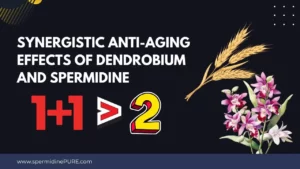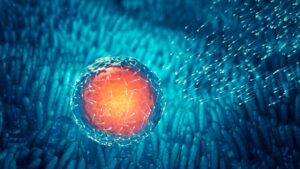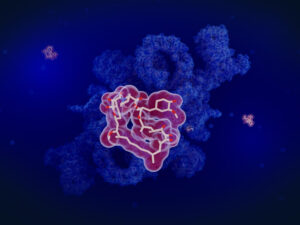Since 2013, when Harvard Medical School’s Dr. David Sinclair discovered that beta-nicotinamide mononucleotide (NMN) might extend the lifespan of mice, items containing NMN have rapidly grown popular in the market and attracted a flood of investment to enter it.
The decrease of NAD+ levels is one of the many reasons for aging in organisms since, as a coenzyme of numerous enzymes, it plays an essential role in energy metabolism, immune system function, and substance metabolism.
NMN is a precursor to the creation of NAD+, which can enter the cell and convert into NAD+ directly, thus being linked with anti-aging. Promoting natural environment change as an approach to slowing down aging is regarded as one of the most efficient ways.
Spermidine has been making headlines in recent years as a potential anti-aging component, and it’s just as popular among scientists as NMN is. It performs even better than NMN at the scientific level, and its role is far more significant.
Spermidine and Autophagy
Spermidine, also known as spermidine trihydrochloride, is a polyamine that is produced from putrescine and adenosine methionyl.
In 2009, a research paper published in the Nature sub journal of Cell Biology revealed that spermidine could activate autophagy-related genes, promoting cellular autophagy and slowing cell oxidative stress and necrosis while also extending yeast, nematodes, and fruit fly lifespans. After its publication, the study received considerable interest from the scientific community.
In 2016, Japanese scientist Yoshinori Ohsumi was given the Nobel Prize in Physiology and Medicine for his “discoveries on the mechanism of cellular autophagy,” which confirmed our hypothesis.
Cellular autophagy is an alternative to apoptosis for the maintenance of cell integrity and protection against infections. It destroys invading bacteria and viruses, as well as influences embryological development and protein mutation, eliminating defective proteins and organelles while preserving the body’s cells’ overall stability. Clearly, spermidine activation enhances cellular autophagy even more.
In January 2018, Science, the top scientific journal, published a major paper on spermidine that summarized more than 130 recent research findings and systematically highlighted the many functions of spermidine. It has been demonstrated that spermidine has various effects, including anti-aging delay, life extension, cardiovascular protection against cancer and chronic diseases such as diabetes mellitus type 2 (DM2), neuromodulation, and neuroprotection in brain cells.
Spermidine and Delaying Cognitive Decline
According to the 2018 Global Alzheimer’s Disease Report, dementia has become a worldwide health concern, with one case of dementia emerging every three seconds worldwide, and by 2050 there will be 151 million individuals who have Alzheimer’s disease.
Cognitive deterioration degrades individuals’ quality of life and puts a strain on families and society. Therefore, keeping your cognitive abilities at their best is more essential than attempting to live forever.
A 2013 research in Nature Neuroscience suggested that spermidine may aid cognitive regulation. The study found that modest spermidine supplementation improved polyamine levels in aged fruit flies and reduced memory deterioration associated with aging.
On April 13, 2021, a new joint publication in Cell Reports from Austria, Italy, Japan, Switzerland, and other countries revealed that spermidine dietary supplements can pass the blood-brain barrier in mice and improve mitochondrial functioning.
Spermidine has a similar mechanism of action in numerous functional aspects, all of which enhance function by promoting autophagy in cellular tissues and increasing the expression of eIFAs, enhancing mitochondrial autophagy and thus antioxidant activity, improving cognitive functioning.
The spermidine component’s application is more grounded.
Spermidine is not a mystery, as it’s similar to NMN. Soy, mushrooms, and cheese are all high in spermidine. Human intestinal microbiota also produces spermidine for human use; however, the metabolites of intestinal bacteria contain additional spermidine that is required by the body.
As a result, there are two distinct pathways for the dietary supply of spermidine: first, increasing the amount of extraction of natural substances containing high amounts of spermidine in order to meet content requirements, and second, enhancing intestinal spermidine availability by modifying or boosting the structure of gut microbiota. In addition, intestinal flora has previously been proven to have cognitive modulating properties and, as such, might be one among several metabolites that play an important role.
With assistance from numerous variables like as safe and reliable raw materials, wide availability, and plentiful sources of spermidine, the theory will become a reality sooner. Spermidine may be more readily acknowledged by society because of this progress.



